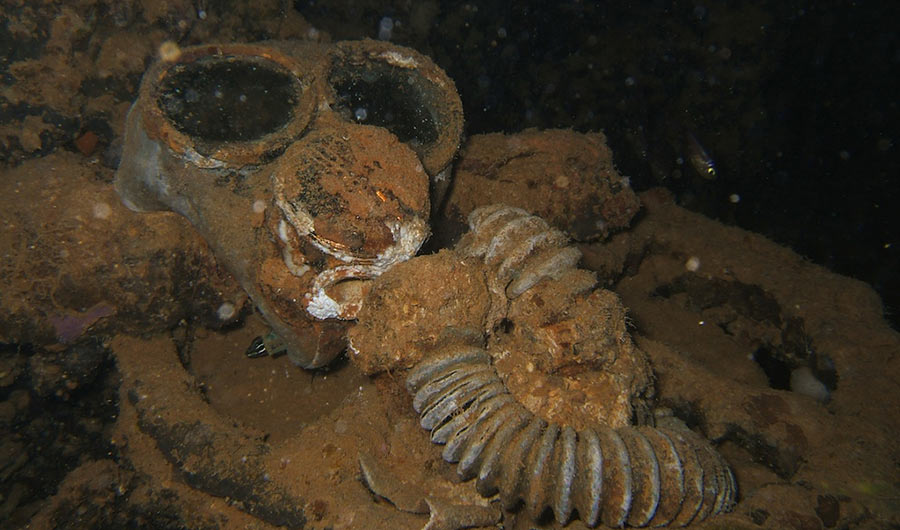The final resting places of many WWII sailors are being stolen by modern day pirates.
These “metal pirates” as they’re known aren’t looking for treasure as we usually think of it. Instead, they are interested in the metal in the ships – bronze propellers and casings on the electrical equipment found in these historic vessels.
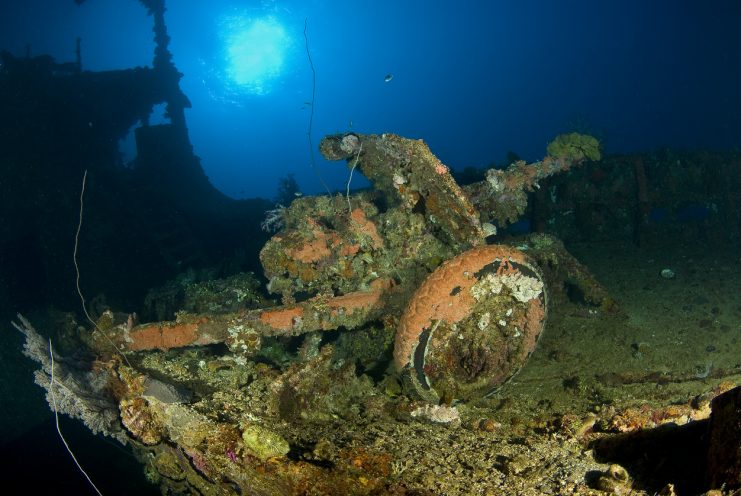
According to Kim Browne, a lecturer in international law at Charles Sturt University in Australia. She also authored a new study in the Journal of Maritime Archaeology.
These wrecks often lie in the territorial waters of countries that feel they were victimized during the war. These countries feel little incentive to protect the wrecks which represent a troubled history to them. In addition, many of the wrecks contain explosives or polluting chemicals which endanger the environment.
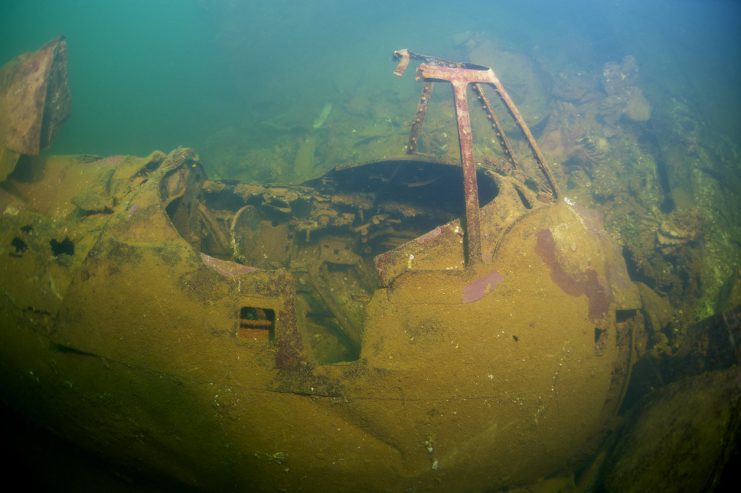
Browne found that between both the Axis and the Allied forces of WWII, over 120,000 ships were constructed during and leading up to the war.
Thousands were sunk around the globe and, though the wrecks are still owned by the countries they sailed or flew for, access to the wrecks is controlled by the country whose waters they lie in. The country who owns the wreck must rely on the other country to protect the sites from looters.
A single bronze propeller can fetch tens of thousands of dollars. An entire wreck might bring one million dollars. This is the underlying economics that has led to the HMAS Perth being looted for scrap metal.
The Perth is one of Australia’s most treasured warships. Ships from Britain and the Netherlands along with a submarine from the US have all been looted in recent years.
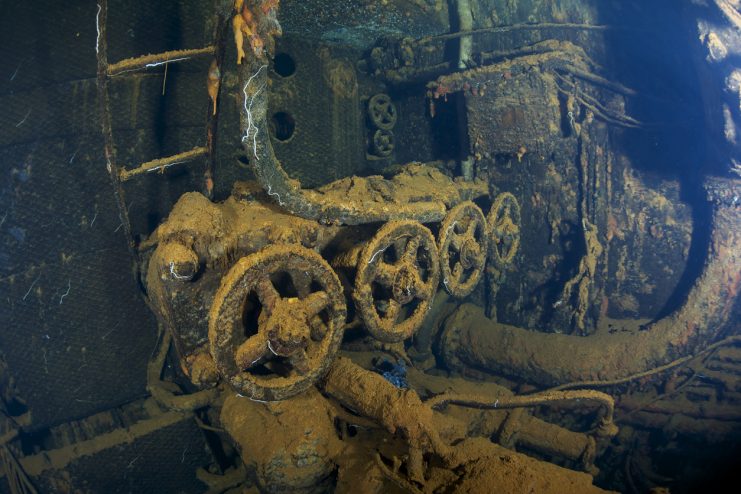
One thing that makes the steel from these wrecks so desirable is that it was made prior to atomic testing. This means it is free from background radiation which is of great importance to the scientific and medical testing communities.
It’s not known who is doing the looting. The majority of large ship scrap yards in the world are in India, China and Bangladesh. There are some in the Philippines and in Malaysia, as well. The majority of these scrap yards are legitimate.
Browne has noted that there are some Malaysian companies that are believed to be working with an international syndicate looking to get this precious pre-atomic steel.
On one side of the argument is the US, the UK, the Netherlands and Japan. These countries argue that these wrecks have historical significance. Also, many of these wrecks still contain the remains of the sailors or pilots that died in service to their countries. This makes the wrecks grave sites.
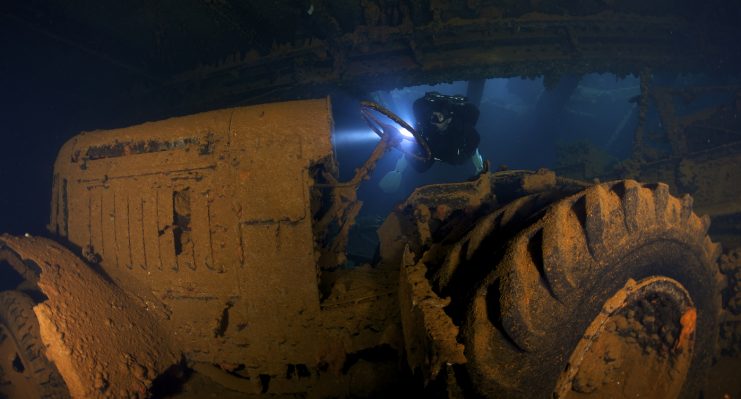
In Indonesia, looters use giant cranes to rip entire sections of the vessels. Some of these large sections contain bones. The Indonesians buried the bones in a mass grave on the shore but other looters are not so respectful of the dead.
James Delgado has worked with a company called SEARCH which works with undersea wrecks. He saw firsthand looters wash debris off of the parts they had looted. Included in the debris was glasses, fabric and watches from the deceased. He said that sometimes bones are brought up and then kicked back into the sea.
In the Pacific, many countries still recall the harsh treatment they received during WWII after being occupied by Japanese forces. They have little desire to protect the reminders of such a terrible time in their history.
In some cases, the wrecks contain dangerous explosives or toxic chemicals which are a threat to the ecosystem in the area. Since the countries that own the wrecks have no plans to clean up the mess, sometimes the metal pirates provide the only means for the neighboring countries to remove the threat.
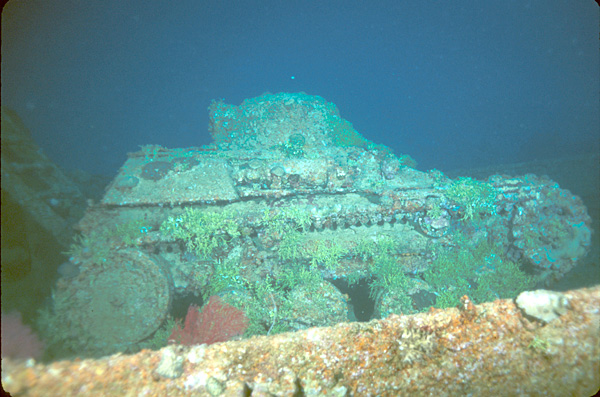
The problem with having the WWII wrecks removed by illicit means is that the looters have no incentive to take proper precautions to contain spills. Removal by the pirates is much worse than having legitimate salvage operators do the work.
Browne feels that a change in international law is going to be required in order to protect these wrecks in the future.
Another Article From Us: Submarines Vanish From The Seabed & They Contained Remains of 77 Crew Members
